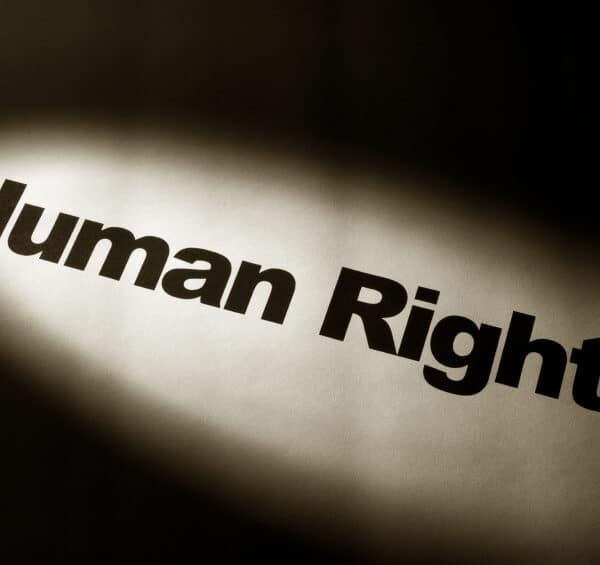 I’ve often heard this from employees in disciplinary processes, as an obstacle to carrying out a legitimate request or as a defence for not doing so. Unsurprisingly it can bring a manager up short; although usually neither party really understands what is being said. Much the same applies if the assertion is made by a service user. The Human Rights themselves are set out in the Human Rights Act 1998 and they may seem clear. In practice they are not.
I’ve often heard this from employees in disciplinary processes, as an obstacle to carrying out a legitimate request or as a defence for not doing so. Unsurprisingly it can bring a manager up short; although usually neither party really understands what is being said. Much the same applies if the assertion is made by a service user. The Human Rights themselves are set out in the Human Rights Act 1998 and they may seem clear. In practice they are not.
For example, the right to privacy might be seen to be compromised by every CCTV camera placed in a public street. So deciding whether a specific right is breached by a specific act will need legal advice in most cases. There is however substantial protection enshrined in other legislation and it is useful to understand how the Human Rights Act works in practice.
Background
The origin of legislation is the Universal Declaration of Human Rights made in 1948 in the aftermath of some of the greatest breaches of human rights ever seen in European history. These breaches were perpetrated by government; notably by, but almost certainly not exclusively by, the German government prior to and during the second World War.
Subsequently European governments became bound by the European Convention on Human Rights, to do two things:
Ensure their own actions did not breach Human Rights
Put in place legislation to ensure its citizens do not breach Human Rights
Governments not to breach rights
The 1998 legislation is designed to achieve the former. Prior to 1998 a citizen’s main recourse to redress for a breach was to take a case to the European Court of Human Rights. This is something Alison Halford did in a case which was prominent at the time. Ms Halford brought a case against the police for sex discrimination when she was passed over for promotion to Chief Constable. But in seeking to mount a defence the police bugged her telephone. She successfully challenged the UK government in the European Court of Human Rights for breaching her privacy. The UK government was forced to enact legislation to stop itself committing acts that would be in breach of Human Rights. This, very broadly, is what the 1998 Act does. It commits the Government to behaving in accord with the European Convention by enshrining this obligation in its own legislation.
Public bodies are obliged to observe the Human Rights Act directly and will stringently seek to do so. This means citizens should not need to bring, as Alison Halford did, actions in the European Court. Anyone employed by or subject to the actions of Government bodies is protected. We shall return to this a little later.
Governments to put legislation in place
The UK government has enacted a substantial raft of legislation to protect Human Rights and continues to do so. Some of this, such as the Data Protection Act although at the time of the Halford case covering only computer data, were in force before 1998. It covers many aspects. The Equality Act protects citizens from discrimination, Data Protection their privacy, Mental Capacity Act protects those with a lack of capacity, etc. The legislation enables individuals to take action in the courts if they feel these rights have been breached. The police may also take action resulting in criminal prosecutions. It is rare in practice for a citizen to take action under the Human Rights legislation itself. Indeed so far as employees are concerned Human Rights are not even within the jurisdiction of Employment Tribunals. Action is much more likely under other specific legislation such as the Equality Act.
Human Rights, vulnerable people and government
A government body in European law is any body which provides a service under the control of government. The government is directly responsible for ensuring Human Rights are not breached. But this can be interpreted. For example, prior to 2008 if the government provided funding to a care home to provide a service then that service was not considered under the control of government. Health and Social Care Act 2008 has made it clear that these homes are now “exercising a function of a public nature” and therefore bound by the Human Rights Act just as is the government itself.
But what if the care is funded by the individual themselves, or by one of their relatives? What if the home is entirely private, not receiving any government funding? Citizens considering their Human Rights to be breached would have to engage in legal actions that most would not understand, actions would be stressful, and risky (as not all legal actions are successful). It is not something most would want to undertake as vulnerable person.
The Care Bill, as amended, currently going through parliament seeks to address this. Once enacted the Human Rights Act should protect all people receiving care services as if the services were provided by government.
What can care providers do?
It is important to assess the risks in your business. Degrading treatment or other abuses are a risk especially when employees might be out of sight, in a resident’s room for example. You also need to ensure a safe environment for both your employees and service users. Fair remuneration is another important aspect. It is easy to fall foul of National Minimum Wage regulations when care is needed. Some are of the view that zero hours contracts are exploitative rather than fair (although most employees on them like them!)
QCS policies and procedures (for example its Complaints, Suggestions and Compliments Policy and Procedure) are designed to assist in the process of respecting Human Rights.
(Please note that this article is for general guidance only.)
Malcolm Martin – QCS Expert Human Resources Contributor






